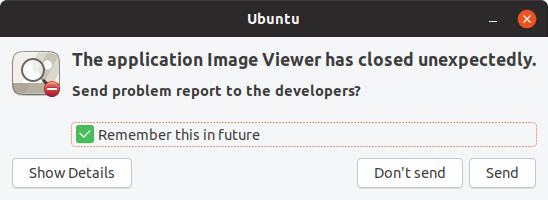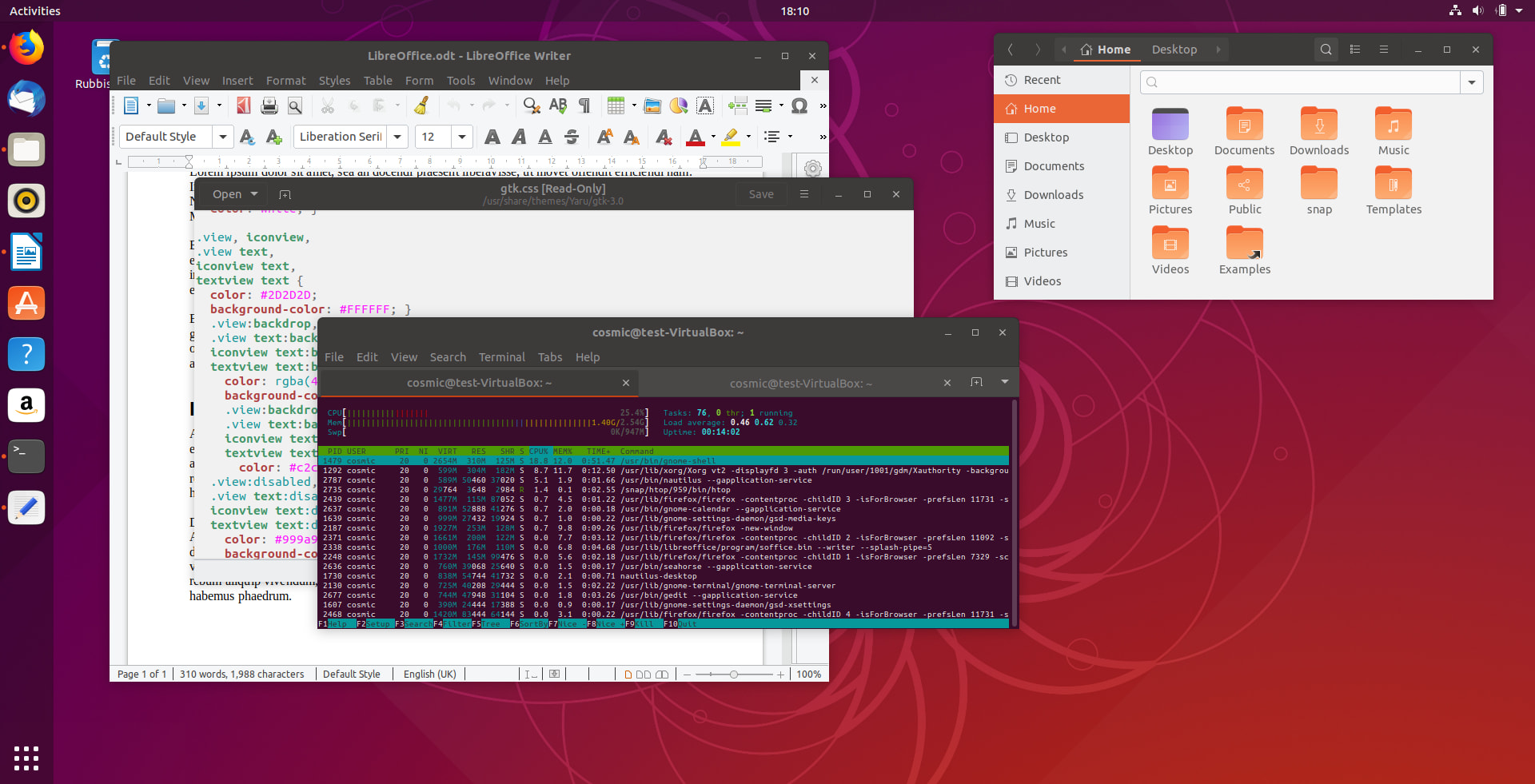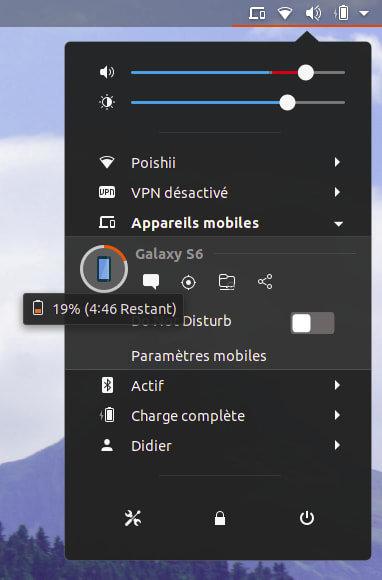Welcome Ubuntu Desktop 18.10
Will Cooke
on 19 October 2018
The Cosmic Cuttlefish has arrived. Ubuntu 18.10 is out and represents the first step on the road to the next LTS in April 2020. This release of Ubuntu comes with 9 months of support and brings the latest update to the GNOME stack, improvements to the snap experience on the desktop, some new features and usability improvements, and a fresh new theme developed by the awesome Yaru developer community.
Desktop Updates
Starting at the bottom of the stack, we see updates to the kernel and essential libraries. The 4.18 kernel adds support for the AMD Radeon RX Vega M GPU and the linux-firmware package has been updated to include the relevant binaries meaning that your out-of-the-box experience on AMD GPUs is much improved. Kudos to AMD for getting their code in to the upstream kernel.
A step up from the kernel, 18.10 updates OpenSSL to 1.1.1 which in turn supports TLS v1.3 which is faster and more secure.
Ubuntu 18.10 ships with the latest GNOME 3.30 release which brings a host of improvements, performance boosts and new features. As always, our heartfelt thanks to the GNOME developers and community for another great release.
There have been updates to a lot of the GNOME applications, including:
- The Disks application can decrypt and mount storage volumes encrypted with VeraCrypt, allowing you to share data more securely.
- The Settings application has a new panel to manage Thunderbolt devices and now shows hardware-related panels only when the relevant hardware is detected keeping the panel list tidier.
- On the performance side, more shell elements are cached in GPU memory to reduce CPU/GPU load and increase frame rate. Desktop zoom is now a lot smoother and the smoothing of window previews is conditional on CPU/GPU availability. This ensures busy applications don’t slow down the whole system when window previews are visible.
We also started worked on a number of other performance improvements which will continue to be refined following upstream reviews.
On the error reporting front, we’ve added the option to remember your choice when prompted to send a report. If checked, all future crash reports will be sent to the error tracker automatically and will help us to build a very good picture of where the bugs are and help to prioritise fixes. While this option is already available via Settings, this update helps to present the choice when the user has more context about what it does.

The most obvious change in 18.10 is that the Yaru theme is now the default. The community led team have built a fresh new look for the Ubuntu desktop and we’re excited to be able to ship it by default. As Didier says on the Community Hub:
“Eleven months ago, this topic started, which was a consequence of some comments on the “GNOME Shell transition” and related blog posts: it was maybe time to change and refresh our theme. A lot has happened since then, and you can read the 1828 posts on this thread started, without counting other dedicated work topics! We now have a very beautiful theme as a default, fresh new look for Ubuntu 18.10! The theme even goes beyond the initial scope, thanks to the motivation of participants: it’s spreading from GNOME Shell, GTK, icons and even a new whole set of sound effects!”

Fingerprint Unlock
The core fingerprint stack has landed in Cosmic with fprintd and libfprint being promoted to the main archive. Fingerprints can be used to unlock a session which has already been logged in to, not to log you in to a new session. This is a security consideration since fingerprints are considered to be equivalent to usernames, not passwords. As users can already chose to automatically login or opt not to have to unlock the screen with a password, fingerprints are equivalent here. Note that you will still need to have drivers for you fingerprint reader to make full use of this.
XDG Portals
Portals are a key concept in providing sandboxed applications such as snaps with managed and controlled access to resources on the host system. Therefore, Portals support for snaps will be an important usability improvement for confined applications on the desktop. Snap support has been added up the upstream Portals project and support has landed in 18.10. This will find it’s way in to 18.04 LTS once it has had more testing in 18.10 and more applications take advantage of the feature.
GNOME Software Design
We reported earlier this cycle on a design sprint we ran to explore new ideas around the promotion of software and ways to improve the layout of application pages within GNOME Software. The designs have continued to evolve in association with upstream developers and some implementation has already been done. We’ll be making more improvements in the 19.04 cycle with the aim to make GNOME Software somewhere to get information and updates from your app ecosystem.
GS Connect
At the start of this cycle we expected to add the GS Connect extension by default. We had good discussions with Andy and discovered that he was doing a rewrite of the code. We both agreed that including the new code in the desktop late in the development cycle was not the right approach. However, the extension is fully packaged and available to install from the Universe repository:
$ sudo apt install gnome-shell-extension-gsconnect
There will be more updates in the coming weeks and we’ll do a call for testing soon. With more QA in 18.10 we can look at promoting GS Connect to main next cycle.

Ubuntu User Statistics Website
Our design and web teams have been working on the public website to share the results of Ubuntu Report survey. That website is now available here. You can see a breakdown of data by physical and virtual machine for a range of data generously provided by Ubuntu desktop users. It’s amazing to see that there are Ubuntu users in every country of the world; hello, bonjour, hola, hallo, ciao, namaste, konnichiwa, salaam, jambo, howdy.
Media Sharing
We wanted to add DLNA server capabilities to the desktop this cycle, which involved promoting a number of packages to Main from Universe. Naturally those packages need to be reviewed by Ubuntu developers for, amongst other things, security, code quality, maintainability and so on before they can be accepted in to Main and on to Ubuntu desktops by default. There was not sufficient time this cycle to adequately review these packages, and so we decided to drop this feature. We will review the situation next cycle and make a decision as to whether to invest more time in to adding it or not. For now though the packages are in Universe and can be installed via apt. You can read more about Rygel on the GNOME wiki: https://wiki.gnome.org/Projects/Rygel
Hyper V
During this cycle we landed optimised images for Ubuntu 18.04 LTS on Microsoft Hyper-V, and we will follow up with 18.10 images imminently.
Summary
It’s been a busy six months, as it always is, and a few things missed the cut, but you should find Cosmic is a high quality, solid, reliable and smooth desktop with the latest packages from a wide variety of open source projects. The snap experience on the desktop continues to improve and evolve, and the ability to get box-fresh apps direct from the vendor shows a clear vision for the future of app discovery, distribution and secure execution.
GNOME provides a highly integrated, reliable desktop ecosystem released on a regular, reliable cadence. Our relationship continues to flourish and we’ve provided more upstream patches than ever before and are very grateful for the reviews and feedback we’ve received.
Gamers will find the updated Mesa and kernel deliver significant performance improvements and the out-of-the-box AMD GPU experience is frictionless.
We have our plans for 19.04 and beyond worked out and development begins right away. I’ll report back on our plans when I return from our roadmap sprint in Salt Lake City next week.
It the meantime, download 18.10, read the release notes and head out into the cosmos.
Talk to us today
Interested in running Ubuntu in your organisation?
Newsletter signup
Related posts
SpacemiT announces the availability of Ubuntu on K3/K1 series RISC-V AI computing platforms
SpacemiT (Hangzhou) Technology Co., Ltd. today announced a collaboration with Canonical to make Ubuntu available on SpacemiT’s new K3 SoC and the existing...
AI meets SQL Server 2025 on Ubuntu
Partnership between Microsoft and Canonical Since 2016, when Microsoft announced its intention to make Linux a first class citizen in its ecosystem, Canonical...
Canonical Ubuntu and Ubuntu Pro now available on AWS European Sovereign Cloud
Canonical announced it is a launch partner for the AWS European Sovereign Cloud, with Ubuntu and Ubuntu Pro now available. This new independent cloud for...
